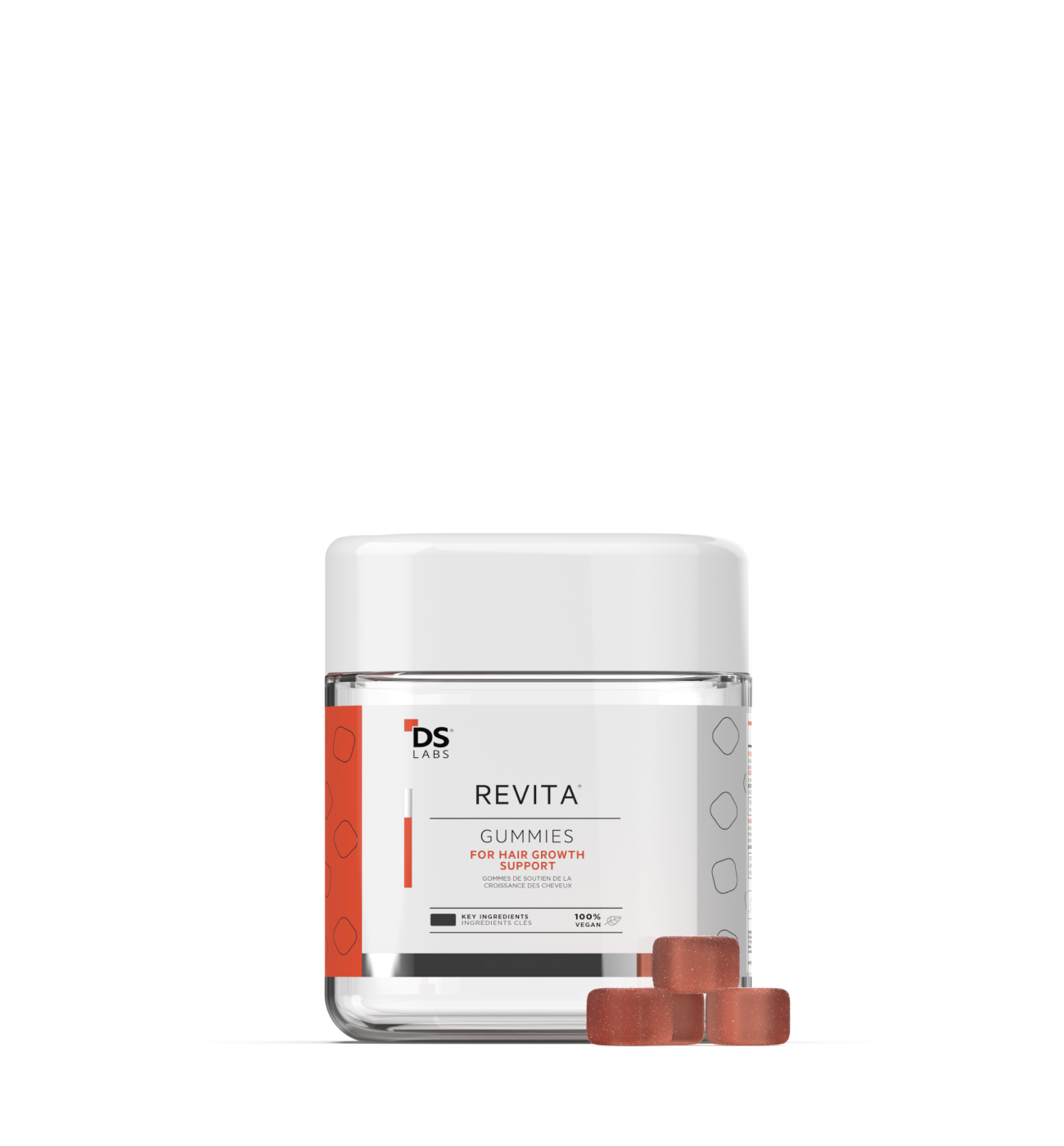A few strands of hair coming loose when you shower or brush your hair is normal. But when you start noticing the amount of hair being shed growing, it can be distressing.
Several hair loss treatments recommend taking vitamin D to curb hair loss but is there any truth to it? Does vitamin D deficiency cause hair loss? If so, how do you treat it quickly and prevent further hair loss?
In this guide, we’ll answer all these pressing questions to help calm your worries about hair loss due to low vitamin D.
Can Low Vitamin D Cause Hair Loss?
Yes, low vitamin D can cause hair loss although how and why aren’t clear.
One reason why vitamin D is suspected to cause hair loss is because of how it’s metabolized. Skin cells called keratinocytes enable metabolization. These same cells produce keratin, a key protein in hair, skin, and nail health.
When these skin cells can’t get enough vitamin D, they can’t grow healthy hair which makes them fall off easier.
One research suggests that people who have alopecia areata have low vitamin D. Another study suggests that low vitamin D can cause other forms of hair loss in women.
What we do know is vitamin D has a role in the creation of new hair follicles. This means a healthy dose of vitamin D in your body can boost hair growth.
So, how do you know if you have a vitamin D deficiency?
What Are the Symptoms of Low Vitamin D?
If you spend too much time indoors or always wear sunscreen, you may have a vitamin D deficiency. You may also notice the following symptoms:
- Muscle weakness
- Muscle aches and cramps
- Constant fatigue
- High blood pressure
- Changes in mood
- Slow healing of cuts and wounds
- Anxiety or depression
- Chronic pain
- Joint pain
- Loss of bone density
- Frequent fractures
- Decreased endurance
- Infertility
-
Hair loss
These symptoms aren’t consistent in every person with low vitamin D and sometimes the symptoms can change over time.
The only definitive way to determine if you have a vitamin D deficiency is by getting a blood test.
Additionally, some people may experience low vitamin D as a symptom of an underlying medical condition or as a side effect of medications.
Make sure to mention your concern about vitamin D deficiency with your health practitioner before you start treatment for low vitamin D levels.
What Is the Treatment for Low Vitamin D?
Sun Exposure
Spending time in the sun is a natural way to increase your body’s vitamin D levels. But the process can be slow. There are also risks associated with excessive sun exposure.
To prevent the adverse effects of sun damage while still getting your daily dose of vitamin D, stick to 15 to 20 minutes of sun exposure daily. If you can’t get out much, try sitting near a window that receives direct sunlight.
Vitamin D Supplements
Vitamin D supplements are a faster way of solving your deficiency. It is also less demanding than sitting in the sun. All you have to do is take one supplement twice a day.
Try getting a supplement that also includes ingredients like biotin, zinc, keratin, and iron which are good for the hair.
In addition, take supplements with your meals so your body can properly absorb vitamin D.
Healthy Diet
Your diet can increase your vitamin D levels and influence how fast your vitamin D treatments work.
To boost your vitamin D intake through your diet, start including sources of vitamin D such as salmon, mackerel, and other fatty fish in your diet along with fish liver oils and animal fats.
If you’re a vegetarian, you can ingest cereal, milk, and orange juice that are fortified with vitamin D.
Another way to boost your uptake of vitamin D is to eat meals rich in healthy fats as these are known to help the absorption of vitamin D.
How Long Does Vitamin D Treatment Take?
How long your vitamin D deficiency lasts depends on factors like age, the severity of the deficiency, underlying medical conditions, etc.
In healthy adults without other health conditions, results should be visible in 30 to 60 days and peak results should be visible after 90 days.
Causes of Hair Loss Other Than Low Vitamin D
It’s important to remember that even if you have a vitamin D deficiency, it may not be the sole cause of your hair loss. Here are some other reasons that you may want to look into:
- Genetics
- Lifestyle factors
- Stress
- Medical conditions
Summary
Getting to the root cause of hair loss can help you find the best treatment for it whether it is low vitamin D or something else.
With this guide, you know what you need to do to reverse hair loss due to low vitamin D levels. If you suspect that your vitamin D is dangerously low, make sure to consult a doctor so you can decide on the best way forward.
If you’ve vitamin D deficiency isn’t too severe, you can simply add a supplement to your diet!















